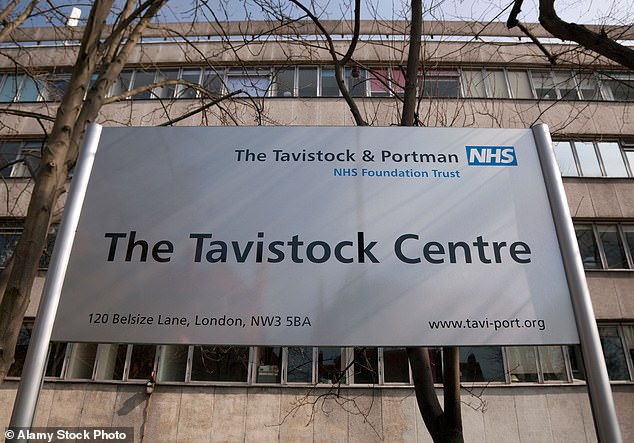A lesbian NHS leader has been told not to waste time applying for a senior position at a controversial NHS trust that offers gender reassignment surgery to 10-year-olds because of their views on sex.
Kate Grimes, who previously ran Kingston Hospital in London, inquired about a top mental health role at the Tavistock and Portman NHS Trust.
Ms Grimes is openly lesbian and was ranked as one of the top 25 LGBT role models by the NHS in 2014.
But she was told not to bother applying for the role after she told them she believed there were only two genders and "sex is unchanging".
She has also previously publicly criticized trans rights groups and supports the LGB Alliance – a charity founded to oppose LGBT rights organization Stonewall's policies on transgender issues.
Tavistock is notorious for its clinic that can refer children to puberty blockers. It recruited external expertise after being deemed “inadequate” by inspectors last year.
It was brought to court last year by ex-patient Keira Bell, 24, who is retiring after regretting taking the hormone medication as a 16-year-old.
And it was also done by the former employee Dr. David Bell, a consultant psychiatrist, criticized because he believed that any girls who didn't like "pink bows and dolls" must be transgender.

Kate Grimes, who ran Kingston Hospital in London, was told by an external recruiter not to waste time applying for a senior position at Tavistock and Portman NHS Trust because of her gender-critical views

The Tavistock and Portman NHS Trust in London is notorious for being the only trust to offer puberty blockers to teenagers
After deciding not to proceed with her application, Ms Grimes wrote a letter to Health Secretary Sajid Javid asking him to intervene and launch a review of the processes.
Emails show that Dr. Melanie West, a recruiter at Gatenby Sanderson, told Ms Grimes that she would almost certainly not be considered for the role because of her views.
Dr. West said: "I have to say that your view that sex is immutable is not a view that the Trust wants its non-executives to have and so I would not recommend that you waste time making a request for it."
“That will be one of the questions I ask candidates in the first interview.”
Ms Grimes said she was “absolutely amazed” by the response.
Peter Daly, employment lawyer at Doyle Clayton, said excluding people because of gender-critical views constituted the same level of discrimination in the eyes of the law as doing so because of race, gender or sexuality.
In a letter to the Health Secretary, Ms Grimes said the trust had "compounded its government failings - and broken the law - by refusing to interview anyone who believes biological sex cannot be changed".
she said The Daily Telegraph: “It is entirely possible to support and care for children with gender dysphoria without believing that it is literally possible to change biological sex.
“Indeed, a fundamental principle of good health care is that personal beliefs do not interfere with the care provided.”
Ms Grimes has previously spoken out against pro-trans groups including Stonewall, the LGBT rights charity.
She accused the NHS of putting patients at risk by signing up to the charity's controversial Diversity Champions programme, which has since been abandoned by the Cabinet Office, the House of Lords and the BBC.
More than 90 healthcare organizations are believed to be members of the charity's controversial scheme, including the Department of Health, NHS England and numerous hospital trusts.
Ms Grimes accused Stonewall of "undermining" the NHS's ability to keep patients safe, "suppressing" freedom of speech and creating a "culture of fear" among some NHS staff.
And she warned that some advice risked “opening up NHS organizations to litigation and reputational damage”.
Ms Grimes recalled how she received offensive messages when she came out as a lesbian in the late 1980s, her pride in leading one of the country's leading HIV/AIDS services and her appreciation for Stonewall's campaign for greater equality.
However, she said the charity's recent lobbying on trans issues culminates in the "false notion" that a man who identifies as a woman has legal access to women-only spaces.
As a result, she added, female patients no longer have access to single-sex accommodations on wards and bathrooms.
A spokesperson for Tavistock and Portman said: “We adhere to equality laws and NHS best practice when recruiting.
“We welcome applications from all suitably qualified candidates, including whether they meet the NHS-wide criterion of promoting and respecting equality, diversity and inclusion.
“If an applicant meets the essential criteria for a position and also tells us that they have a disability, they will automatically be offered an interview.”

 Suche
Suche
 Mein Konto
Mein Konto


